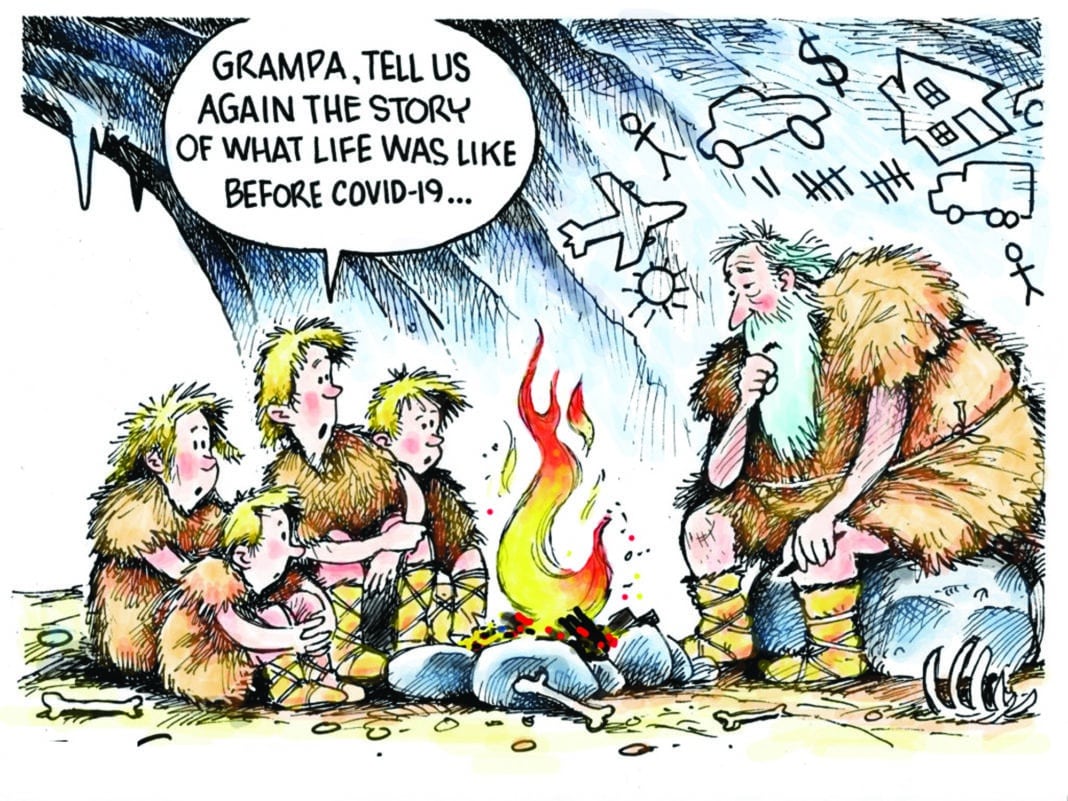It is a sobering thought — although I haven’t touched a drop in years — that if coronavirus had existed earlier, there might not have been a later us. Are you feeling a bit more sober now?
For most of mankind’s history, something or other has been out to get us. To wipe us out. To bring an end to our all-too-brief reign as monarchs of the glen, whether we lived in a glen or not.
We had become careless, insouciant in our belief that we were number one, top of the heap, cream of the crop, kings of the hill. (I do apologise, I seem to have inadvertently strayed into the lyrics of a song called New York, New York.)
As I said, or meant to, survival can sometimes be simply a matter of luck, like leaving West Hollywood the day before an earthquake in 2001, boy did I dodge a bullet there. (Actually, it wasn’t too bad — “It caused some dishes to fall.” said one report.) We are currently congratulating ourselves that a vaccine was developed to combat coronavirus in record-breaking time, but what if the time had been much earlier in our history?
What if we were cavemen when the virus first sprouted its nasty little spikes and attacked the cells we didn’t even know we had? Let’s say in the Cro-Magnon era, around 48,000 years ago, when the only thing to do of an evening was to paint your cave walls, or draw bison and deer on them. (How did they get the animals to stand still long enough?)
I used to think it must have been terrifying for prehistoric humans to develop toothache or break a leg — both still terrify me — but how much more baffling it would have been to come down with COVID-19 (or COVID-46K BC, I suppose I should say.) Huddling together in caves, possibly hugging each other to stay warm, neither washing their hands nor wearing face masks, self-isolating just wasn’t an option with so many ferocious beasts around, not to mention tribal scuffles with the folk in the next cave when they were trying to help themselves to a bowl of your bison broth.
And worst of all — yes, there is worse — cave dwellers may have been artists but they weren’t scientists. As they moved from place to place in search of food and a better climate — Spain, where else, for the sunshine and tapas, but of course the virus thrives in the heat — they would cause the world’s earliest pandemic. What was there to stop it? There were no pubs or restaurants to close, no hairdressers to forbid snipping, no football fans to exclude from stadiums, no toothless dentists.
Adult life on earth might eventually peter out. The surviving children would presumably revert to the sort of feral warlike behaviour described in the novel Lord of the Flies. Which would never have been written, of course, once history came to an end.





